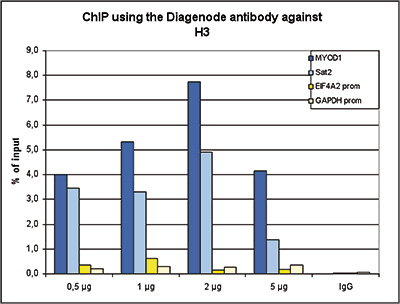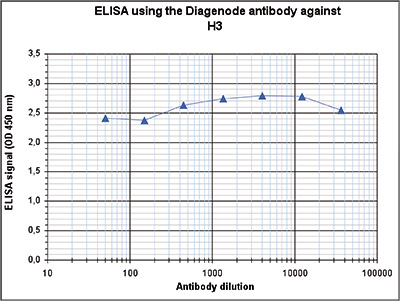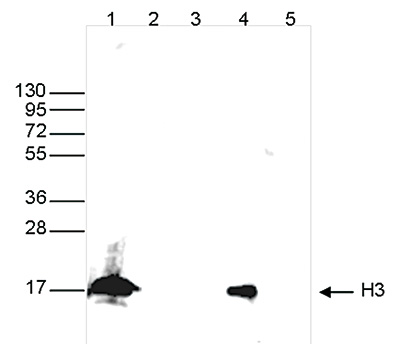Histones are the main constituents of the protein part of chromosomes of eukaryotic cells. They are rich in the amino acids arginine and lysine and have been greatly conserved during evolution. Histones pack the DNA into tight masses of chromatin. Two core histones of each class H2A, H2B, H3 and H4 assemble and are wrapped by 146 base pairs of DNA to form one octameric nucleosome. Histones play a central role in the regulation of transcription, DNA repair, DNA replication and chromosomal stability. These different functions are established via a complex set of post-translational modifications which either directly or indirectly alter chromatin structure and DNA accessibility to facilitate transcriptional activation or repression or other nuclear processes.





